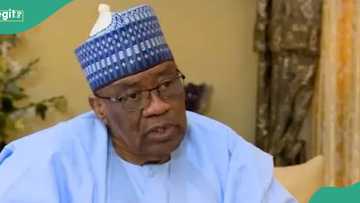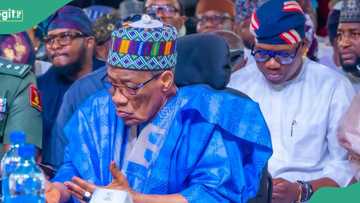Family Makes One Demand as Babangida Explains Why He Killed His Bossom Friend in 1986
- Ex-Head of State Ibrahim Babangida revealed that he was forced to choose between his friend and national security
- Babangida claimed covert investigations provided "incontrovertible evidence" of Vatsa’s involvement, leading to his execution in 1986 despite their close friendship
- Vatsa’s family rejected Babangida’s justification, insisting the execution was politically motivated and unjust
Former Head of State, General Ibrahim Babangida (retd.), has opened up about the execution of his childhood friend, General Mamman Vatsa, revealing that he was forced to choose between personal loyalty and national security.
In his autobiography, A Journey of Service, launched on February 20, 2025, Babangida detailed how he first heard of Vatsa’s alleged coup plans through rumours.
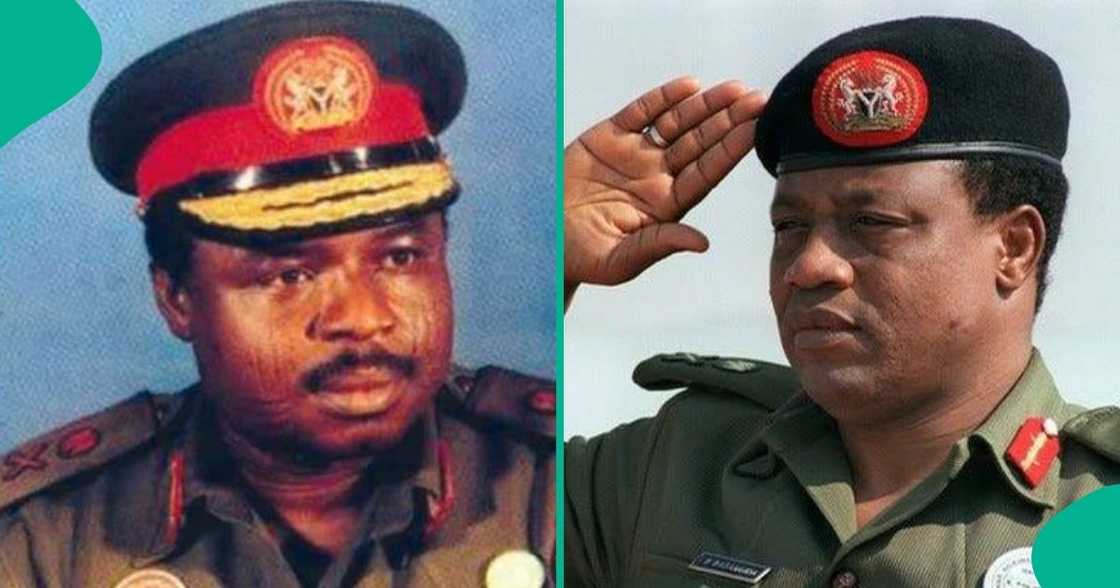
Source: Twitter
Initially dismissing them as baseless, he consulted top military officers, including Generals Nasko, Garba Duba, and Wushishi.
According to him, subsequent covert investigations provided “incontrovertible evidence” that Vatsa had financially supported officers in a plot to overthrow the government.
Babangida: ‘I confronted Vatsa, but he denied it’
Babangida narrated how he directly questioned Vatsa about the allegations but was met with firm denials. However, investigations revealed a different reality, The Punch reported.
“With our experience in government and the benefit of hindsight from previous rumors, I decided to confront the principal suspects. When the noise around the alleged coup became too loud, I asked Vatsa directly.
“Nasko also intervened, hoping to uncover the truth, but Vatsa denied everything. Meanwhile, military intelligence continued its covert investigation.”
Babangida claimed that when substantial evidence emerged, arrests were made. Among those implicated was Lt-Col. Musa Bitiyong, who allegedly received N50,000 from Vatsa, which he claimed was for a farm project.
The plot, he added, included plans to bomb Eko Bridge in Lagos and sabotage key Air Force assets. Intelligence reports also suggested attempts to hijack or shoot down the presidential aircraft.
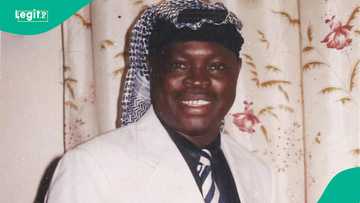
Read also
"Height of heartlessness": MURIC calls out IBB for trying to "rewrite history" in latest memoir
“I felt a deep personal sense of betrayal. But when the military tribunal concluded its review, it was clear that the coup planners had to be executed.”
‘It was a personal loss, but necessary’ – Babangida
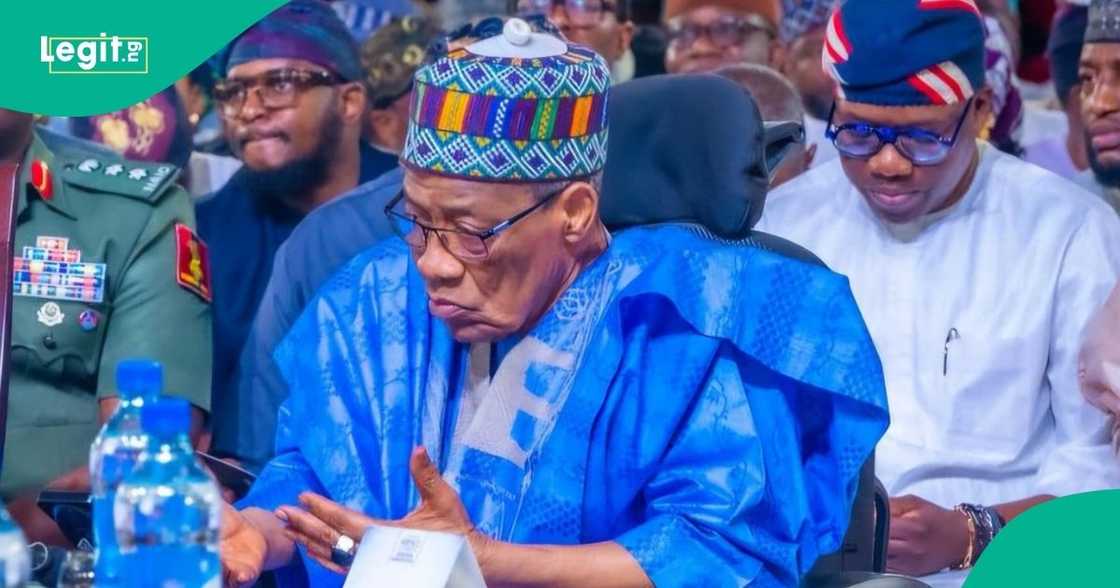
Source: Twitter
Vatsa and nine other officers were executed in March 1986. Reflecting on the decision, Babangida admitted that it was painful but necessary.
“They had planned a bloody coup that could have thrown the country into chaos. I had to choose between saving a friend and safeguarding the nation’s future,” he said.
He also highlighted that all military personnel understood the consequences of a failed coup attempt.
“The penalty was clear and unmistakable. As a human being, I was somewhat depressed to watch him die in such circumstances. But the nation’s stability and the cohesion of the armed forces had to come first.”
Babangida also accused some political figures and Vatsa’s family members of attempting to politicize the execution, maintaining that it was crucial for national security.
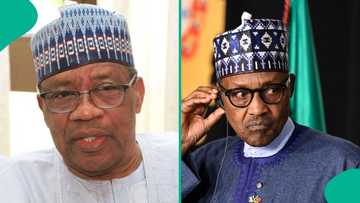
Read also
IBB mentions his main reason for overthrowing Buhari in 1985 even though he was his Chief of Staff
Vatsa’s Family Rejects Babangida’s Explanation
Reacting to Babangida’s account, Jonathan Vatsa, a family member of the late general, condemned the former leader’s justification for the execution.
He described it as an injustice and accused Babangida of eliminating a perceived threat.
“My stance has always been that he was killed unjustly. He never deserved to die.There was no valid reason for his execution, even though the military tribunal sentenced him to death.
"He had the right to appeal, but before he could even file an appeal, they announced he had been killed an hour earlier. Why the rush to execute an innocent man?" Jonathan said.
Jonathan argued that Vatsa’s death was politically motivated. “They saw him as a threat. If he had been alive, they wouldn’t have been able to accomplish the things they did.”
Calls for Restitution
Members of the Vatsa family have renewed calls for restitution, demanding that the Nigerian government revisit the circumstances surrounding his execution.
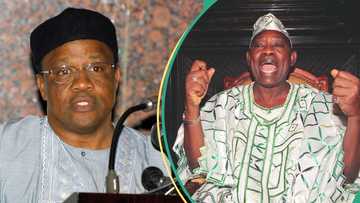
Read also
“I'm convinced about MKO Abiola's family”: Analyst reacts as IBB confesses about June 12 election
“Our family deserves justice. If Babangida truly regrets his actions, the government should take responsibility and acknowledge the wrong done to Vatsa,” Jonathan asserted.
Vatsa's execution 'not isolated' in Nigerian history - Historian
Historian Ekpong Ferdinand has shed light on the historical context surrounding Ibrahim Babangida's justification for the execution of General Mamman Vatsa.
According to Ferdinand who spoke with Legit.ng:
"This incident is not isolated in Nigerian history; the nation has witnessed several instances where leaders have taken drastic measures against perceived betrayals to maintain authority and stability."
Ekpong cited several instances, including the 1976 coup led by Lieutenant Colonel Buka Suka Dimka.
He said:
"For instance, in February 1976, a coup led by Lieutenant Colonel Buka Suka Dimka resulted in the assassination of then Head of State, General Murtala Mohammed. In the aftermath, General Iliya Bisalla, the Commissioner of Defence and a member of the Supreme Military Council, was implicated in the plot. Despite his high-ranking position and close ties within the military hierarchy, Bisalla was executed for his involvement. This action underscored the government's resolve to deter future coup attempts by imposing the ultimate penalty on those involved, regardless of their status."
Another significant event, he said, occurred in April 1990 when:
"Major Gideon Orkar led a coup attempt against General Ibrahim Babangida's regime. The coup plotters seized a radio station, announcing the excision of certain northern states from Nigeria. The attempt was swiftly quelled, and Orkar, along with 41 other conspirators, was executed."
Ekpong, who noted that these Nigerian leaders faced challenges to their authority from within the military ranks, maintained that responses were:
"Marked by swift and severe punishment, often involving the execution of those implicated, irrespective of personal relationships or positions held. Babangida's justification for Vatsa's execution aligns with this historical pattern."
Editorial assistant Ololade Olatimehin provided exclusive commentary from a historian for this report.
PAY ATTENTION: Сheck out news that is picked exactly for YOU ➡️ find the “Recommended for you” block on the home page and enjoy!
Source: Legit.ng


